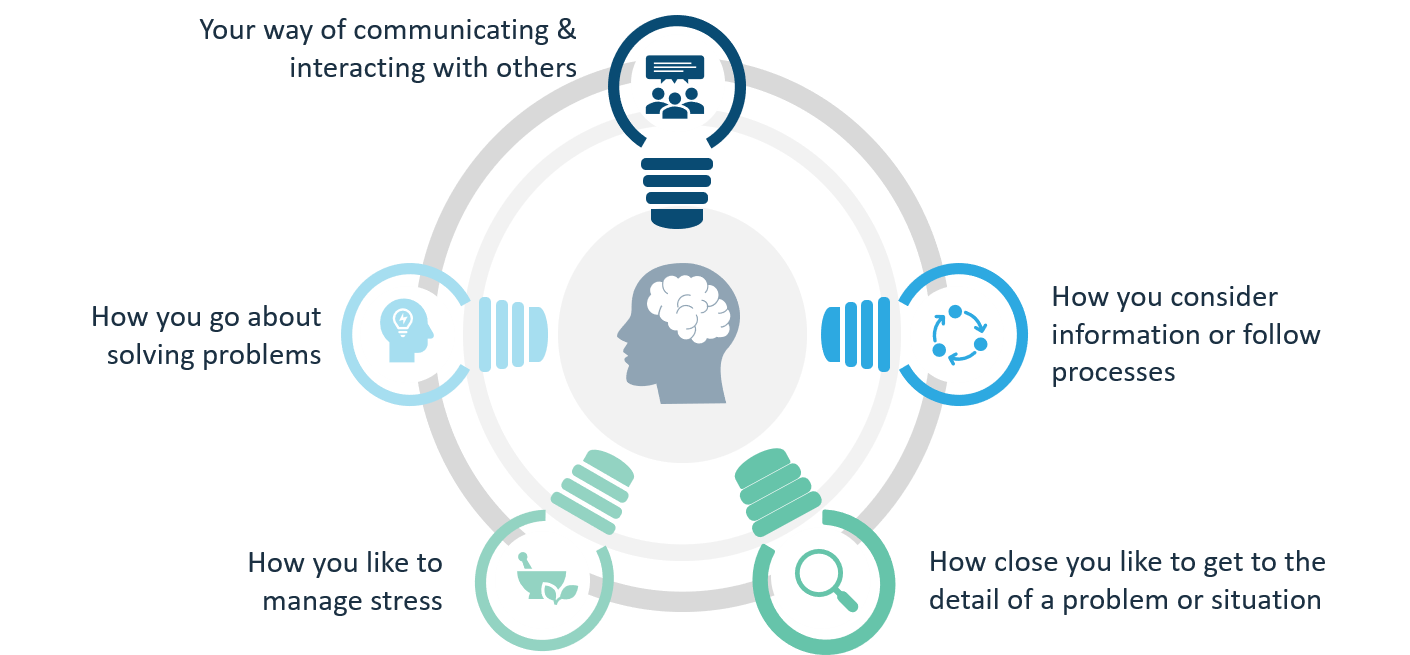What are the 3 types of psychometric assessments?

In today's fast-paced world, the journey towards a fulfilling career can often feel like navigating through a maze without a map. With numerous career options available, each demanding unique skill sets and aptitudes, individuals often find themselves at a crossroads, uncertain about the path ahead. This is where psychometric assessments come into play, offering valuable insights into one's abilities, interests, and personality traits. In this blog post, we delve into the three types of psychometric assessments, shedding light on their significance in career counselling, fostering good student habits, and exploring career options in India.
Understanding Psychometric Assessments
Before diving into the types of psychometric assessments, let's grasp the essence of what they entail. Psychometric assessments are tools designed to measure an individual's psychological attributes, including cognitive abilities, personality traits, interests, values, and motivations. These assessments provide a structured approach to self-awareness, aiding individuals in making informed decisions about their academic and professional endeavours.
Type 1: Cognitive Assessments
Cognitive assessments evaluate an individual's intellectual capabilities, including reasoning, problem-solving, memory, and comprehension skills. These assessments often take the form of standardized tests, such as IQ tests or aptitude tests. By analyzing an individual's cognitive abilities, career counsellors can identify areas of strength and areas for improvement, guiding them towards suitable career paths.
For instance, a high score in logical reasoning might indicate a natural inclination towards fields such as engineering, mathematics, or computer science. On the other hand, strong verbal abilities might suggest a potential for careers in writing, communication, or law. By leveraging cognitive assessments, career counsellors can help students harness their cognitive strengths and align them with compatible career options in India's diverse professional landscape.
Type 2: Personality Assessments
Personality assessments aim to unravel the intricacies of an individual's character, behaviour patterns, and interpersonal dynamics. These assessments are based on established personality theories and typically involve self-report questionnaires or situational judgment tests. By examining personality traits such as extraversion, agreeableness, conscientiousness, openness, and emotional stability, career counsellors gain valuable insights into how individuals perceive the world, interact with others, and approach challenges.
In career counselling, personality assessments play a pivotal role in helping individuals understand their work preferences, communication styles, and leadership potential. For example, a person with high conscientiousness may thrive in structured environments that require meticulous planning and attention to detail, making them well-suited for roles in project management, finance, or research. Conversely, individuals with a penchant for creativity and innovation, as indicated by high openness scores, may excel in fields like design, advertising, or entrepreneurship.
Moreover, personality assessments also contribute to fostering good student habits by highlighting areas of development and providing strategies for personal growth. By recognizing their personality strengths and weaknesses, students can tailor their study techniques, time management strategies, and collaboration approaches to optimize their academic performance.
Type 3: Interest Assessments
Interest assessments delve into an individual's preferences, passions, and vocational interests across various domains, such as art, science, business, healthcare, and technology. These assessments gauge an individual's level of enthusiasm for different activities, industries, and career paths, offering valuable insights into potential areas of exploration and specialization.
In the context of career counselling, interest assessments serve as compasses, guiding individuals towards professions that resonate with their intrinsic motivations and aspirations. By aligning career options in India with an individual's interests and values, career counsellors can foster a sense of purpose and fulfilment in their professional pursuits.
For instance, a student with a keen interest in environmental conservation may discover rewarding career paths in sustainability consulting, environmental advocacy, or renewable energy development. Similarly, someone with a passion for technology and innovation might find fulfilment in roles within the IT sector, such as software development, cybersecurity, or data analysis.
Furthermore, interest assessments empower individuals to make informed decisions about their academic and extracurricular activities, enabling them to invest their time and resources in pursuits that align with their long-term goals and aspirations.
Integrating Psychometric Assessments into Career Counseling
In the realm of career counselling, psychometric assessments serve as invaluable tools for empowering individuals to make informed decisions about their educational and professional trajectories. By leveraging cognitive, personality, and interest assessments, career counsellors can provide personalized guidance tailored to each individual's unique strengths, preferences, and aspirations.
Moreover, psychometric assessments contribute to cultivating good student habits by fostering self-awareness, goal-setting, and strategic planning. By equipping students with the knowledge and insights gleaned from these assessments, educators and counsellors can empower them to navigate academic challenges with confidence and resilience.
As individuals embark on their career journeys, armed with the insights gained from psychometric assessments, they are better equipped to explore the myriad career options in India's dynamic and evolving landscape. Whether pursuing traditional career paths or carving out niche opportunities, individuals can leverage their unique talents and passions to create fulfilling and impactful careers.
Conclusion
psychometric assessments play a multifaceted role in career counselling, fostering good student habits, and facilitating informed decision-making about career options in India. By embracing the insights gleaned from cognitive, personality, and interest assessments, individuals can embark on a journey of self-discovery, unlocking their full potential and charting a course towards a fulfilling and meaningful career.
At Respicite, we believe in the transformative power of psychometric assessments to empower individuals to make informed decisions and unlock their career potential. Explore our range of assessment tools and embark on your journey towards success today!
